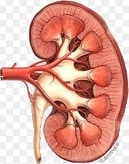
ICR: ‘Pharma needs stronger incentives’
pharmafile | February 12, 2014 | News story | Research and Development, Sales and Marketing | ICR, cancer research, itcc, pharma, r and d
The pharma industry must be given greater monetary help to persuade it to develop drugs which are specifically for children, according to London’s Institute of Cancer Research (ICR).
“Pharmaceutical companies need stronger financial incentives to develop and trial drugs which are purely for paediatric use,” the ICR said in a statement.
The organisation wants the 2007 European Union Regulation on Paediatric Medicine, which outlines how young people take part in clinical trials to be changed – because, it says, children with cancer are being denied new, potentially life-saving drugs as firms are allowed to trial them in adults only.
“Under the current system, pharma companies often gain exemptions from carrying out expensive testing of cancer drugs in patients under the age of 18, even where a drug’s mechanism of action suggests it could work in children,” the ICR says.
“As a result there are significant delays in new drugs becoming available for children, and some drugs may never be formally licensed for paediatric use,” it adds.
Instead, more thought could be given by European authorities to extending exclusivity deals for successful drugs or to making changes to the tax regime. “Incentives such as extra protection of market exclusivity or R&D tax credits might help to persuade companies to complete evaluation in children,” the ICR says.
The body acknowledges that developing drugs for small patient populations is ‘financially challenging’ and there is little incentive at the moment for companies to develop drugs designed only for paediatric cancers.
ICR is also pushing for adult early-stage research – currently only open to those aged over 18 – to be opened out to those as young as 12 years of age.
“Once an adult Phase I study has shown an appropriate safety profile in adults, if the target is appropriate and if the drug has a relevant mechanism of action, adolescents and children should be included in the adult trial without waiting for a subsequent paediatric Phase I trial,” the ICR says.
“For some specific trials, that could mean lowering the age limit to as young as 12,” it goes on, adding that the ICR’s own Drug Development Unit and The Royal Marsden would support teenagers undergoing treatment.
Changing EU rules could allow children to access “a goldmine of potential cancer drugs”.
“Increasing the number of paediatric cancer trials can have enormous benefits for children with cancer, by increasing the number of drugs available to them, improving doctors’ knowledge about how best to use drugs in children, and providing treatment in a best-practice clinical trial environment,” says Dr Louis Chesler, reader in paediatric solid tumour biology and therapeutics at the ICR.
“Many cancer drugs developed for adults could be effective in children if we were able to test them in clinical trials,” Chesler continues. “But the current system allows drug manufacturers to avoid testing their products in children, on the flawed grounds that adult cancers don’t have direct children’s equivalents – even where there is a common mechanism of action.”
The ICR wants the European Commission to refuse to grant ‘class waivers’ to pharma which allow them to avoid the implementation of Paediatric Investigation Plans (PIPs) – the very mechanism which is supposed to give companies an incentive to test their products in children by offering longer market exclusivity.
The France-based European Consortium for Innovative Therapies for Children with Cancer (ITCC) is working with the ICR on the issue, and the two organisations have analysed how cancer drugs are approved in Europe under the current rules.
They found that, of 28 brands approved in adults since 2007, 26 have a mechanism of action relevant for paediatric malignancies – but 14 have been waived from being tested in under-18s because the specific adult condition for which the drug is developed does not occur in children.
The example they give is that treatments for adult cancers with mutations in the ALK or EGFR genes have been given such waivers – even though ALK and EGFR mutations have been shown to play a role in some childhood cancers.
Orphan drug designation – designed to encourage the development of drugs for small patient populations, such as children – is ‘failing to be effective’, the ICR and ITCC say.
“Of the 25 EU-approved orphan medicinal products for cancer, none were registered for children in a different cancer type to that in adults,” they reveal.
“Modern cancer treatments are often targeted at genetic features of the tumour that may be common to a number of tumour types, and to adults’ and children’s cancers,” said Professor Alan Ashworth, chief executive of the ICR.
“That means a drug developed for a cancer in adults could also be effective against a cancer affecting a completely different part of the body in children. The way EU rules are implemented fails to take this into account.”
Adam Hill
Related Content

FDA approves IMIDEX’s AI-powered device VisiRad XR
The technological pharmaceutical company IMIDEX has been granted clearance from the US Food and Drug …

Artiva Biotherapeutics announces FDA clearance of IND for AlloNK and Rituximab combo
On 16 August 2023, the US Food and Drug Administration (FDA) officially cleared Artiva Biotherapeutics’ …

Novartis acquires Chinook Therapeutics for $3.5bn
Swiss pharmaceutical company Novartis has entered into an agreement and plan of merger with US-based …








